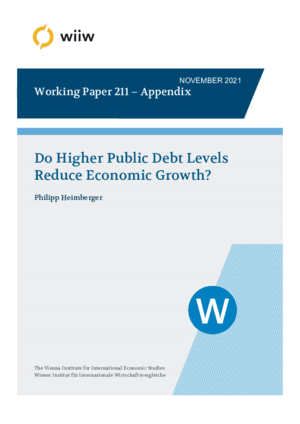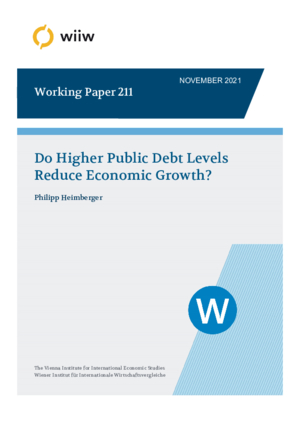Do Higher Public Debt Levels Reduce Economic Growth?
wiiw Working Paper No. 211, November 2021
36 pages including 3 Tables and 4 Figures
While the effect of higher public debt levels on economic growth has received much attention, the literature partly points to contradictory results. This paper applies meta-regression methods to 826 estimates from 48 primary studies. The unweighted mean of the reported results suggests: a 10 percentage points increase in public-debt-to-GDP is associated with a decline in annual growth rates by 0.14 percentage points, with a 95% confidence interval from 0.10 to 0.18 percentage points. However, we cannot reject a zero effect after correcting for publication bias. Furthermore, the meta-regression analysis shows that tackling endogeneity between public debt and growth makes estimates lean less towards the negative side. In testing for non-linear effects, our results do not point to a universal public-debt-to-GDP threshold beyond which growth slows: threshold estimates are sensitive to data and econometric choices. These findings imply a lack of evidence of a consistently negative growth effect of higher public-debt-to-GDP.

Supplementary Appendix: Do Higher Public Debt Levels Reduce Economic Growth?
by Philipp Heimberger
This appendix presents supplementary material for the paper “Do higher public debt levels reduce economic growth?”. We show details regarding data collection, standardisation of estimates, descriptive statistics, further results on publication bias, and robustness checks for the meta-regression analysis.
free download
Keywords: Public debt, economic growth, meta-analysis
JEL classification: E62; F34; O11; O47
Countries covered: OECD
Research Areas: Macroeconomic Analysis and Policy
